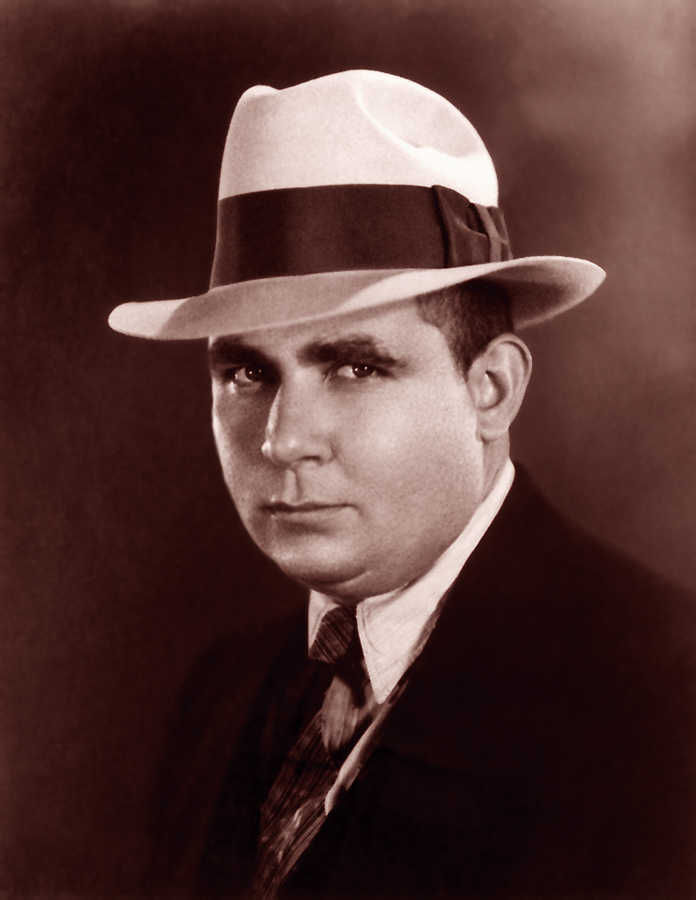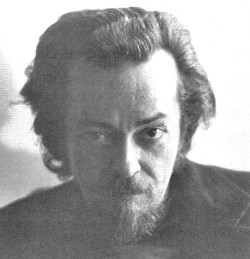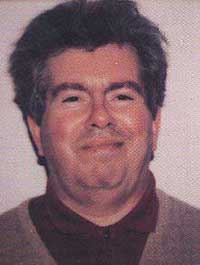So, after 21 books (well, 22, if we want to count all the short stories from Swordsman that got mixed in my versions of the Lancer/Ace books), I think it's time to present my overall thoughts, like I promised. I doubt my conclusions will be particularly profound or earth-shattering, as most of this material is the epitome of shallow genre fiction, for better or worse. Still, as I have been poking through the catalog of stories published over the last 90s years, I have been writing up my thoughts regarding this franchise, which is why this article is so dang big. Hopefully, you'll indulge me as I go over my thoughts on the various themes and qualities of the different authors I experienced. Here we go!
First, let's consider some of the themes. Despite the Hyborean Age being highly based on various historical nations and cultures (with many of their characteristics and prejudices carrying over to these fictional ones), the stories do a mostly good job of not simply assigning broad "good" or "evil" labels on any given ethnicity. In fact, quite often the stories show a variety of moralities among each group as Conan's alliances shift to meet his circumstances. While there are more than handful of poorly-aged stereotypes, it rarely (if ever) drifts into outright racism, at least from my perception (others may disagree, of course). I don't know if there is anything to say in all these depictions other than the fact that Howard really leaned into historical diversity of our own world to help give his Hyborean Age a strong sense of verisimilitude, and subsequent authors were more than willing to carry on what he had started. As as consequence, it does make it hard to decide if this is historical fantasy or not, as Howard deliberately set this up as a unique age of its own to handwave any anachronisms. Still, it's a delightfully diverse yet familiar world, providing plenty of opportunities to tell all kinds of interesting stories.The treatment of women is also all-over-the-place, though. Of course, I need to keep in mind that these are tales meant to excite and engage what is likely a teenage boy audience, so complex female perspectives are not really to be expected. And it's not like every woman in these stories is a frail maiden who simply exists to wear little clothing, be rescued by Conan, and proceed to fall in love with him, but it does seem to happen often enough that it started to bug me. Still, across the authors, there were female characters with their own goals and ambitions, and often the skills to back them up. While many were Conan's lovers, some wanted nothing to do with Conan, and a few were even villains. The way Conan treats women is also peculiar. Much is made of his personal code to help any woman who asks for it, but at the same time, he certainly isn't afraid to consider them a commodity either, hanging out in brothels and drifting from lover to lover. As such, like with the cultural elements I mentioned above, I don't think there can be anything substantive to be said other than that they're tropes common to the pulp fiction era Conan started in and they seem to have stuck around, if only to maintain a sense of tradition (or at the very least branding). As I've mentioned in my reviews, any reader's mileage on this will vary, but I was mostly able to roll my eyes at it and carry on.
However, if there is one thing Conan holds near-complete contempt for, it's the amoral nature of civilization, and he's pretty consistent about it, regardless of which nation he finds himself in. Perhaps that's just a consequence of the various authors trying to retain Conan's iconic barbarism, but there are some interesting points made about how civilized peoples are often willing to turn a blind eye to the suffering of others or to the breaking of vows as long as law and social acceptance can keep them safe from the consequences. There is also more than a few instances of moral decay as a given half-dead city is left in a drug-hazed stupor as a consequence of its citizens' decadence. As such, Conan then becomes a kind of ideal hero, being an outsider that can easily recognize corruption and deceit, and fight those who would benefit from such intrigues and machinations. Still, it's not like Conan is any kind of pioneer in these things, as stories of corruption and those who would fight against it are as old as story-telling itself. In any case, it becomes an interesting lens through which the authors were able to dress down many of the moral grays often associated with civilization and its complexities. While Conan's morals themselves may be pretty mixed, it's in these situations of contrasting his rustic morals with the nature of civilized living where he really does come across as curiously heroic.Of course, trying to tie a varied diverse canon like Conan's to any kind of morality may be a mistake. This certainly isn't The Lord of the Rings, with its clear lines of good and evil, and a world at stake. Again, the appeal is escapist fantasy for the aforementioned demographic, and what more could many a teenage boy want than a muscular body that can both slay any living thing and romance any woman he chooses? Certainly not the most sophisticated material, and very much a product of its age, much of which has been carried forward by later authors, for better or worse. Whether or not these flaws are forgivable is entirely up to the reader. For what it's worth, I was able to see them for what they were, enjoy the action and adventure the stories were meant to provide, and only getting annoyed by how often a scantily-clad woman would willingly throw herself into Conan's arms over little more than a glance at his body.
Setting aside the themes, let's switch to the authors. Obviously, I'll start with Robert E. Howard. While he was a pulp writer in a few different genres, his first steps into fantasy fiction were with Kull of Atlantis and his stories (which are canonically thousands of years before Conan). However, when a certain Kull story didn't sell, Howard rewrote it to be more action oriented, creating the Conan character, and the rest is history. As an writer, I would say he's probably the one with the most inconsistent measure of quality. While titles like "Black Colossus," "A Witch Shall Be Born," and "People of the Black Circle" are solid tales of Conan's military prowess, there's also weaker stories like "The Vale of Lost Women" and "The Devil in Iron," which either feel superfluous or uninspired. I get that he was writing and submitting stories on a regular basis to make a living for himself, so the occasional stinker isn't unwarranted. However, despite the character being his creation, the mixed quality of his stories leave me somewhat underwhelmed compared to other fantasy authors. That being said, some of his later works like "Red Nails" and Hour of the Dragon were the better ones, so maybe if he had lived on, his overall quality would have improved. Nevertheless, his works were certainly good enough to establish the character and the world as early staples of the fantasy genre, giving plenty for later authors to build on. (As for Kull, I may take the time to check out what little there is that exists of him, but it may be a while before I decide to.)After Howard tragically died, the rights to Conan eventually drifted into the hands of L. Sprague de Camp and Lin Carter. I think they've generally done a good job of carrying on the legacy of Conan, but from the stuff that I've read in this series of articles, their quality is rather mediocre. Not offensive, by any means, but they don't really stand out much, either. de Camp's efforts to finish various Howard fragments or revise non-Conan stories into the continuity have been a mixed bag as well. Perhaps a lot of this has to do with de Camp and Carter's clear intentions of maintaining Howard's style and vision at the expense of their own, which is admirable in a way. That being said, their efforts to carry on the legacy of Conan are certainly not wasted, as they helped to flesh out both the character and the world he travels through. Interestingly, I generally ended up liking the novels, particularly Conan the Buccaneer, more than the shorter pieces, if only because they felt slightly more thought out.Bjorn Nyberg's contributions were small, featuring two short stories and one novel, and they revised by de Camp for later collections (also, doing a bit of searching, it seems that Nyberg didn't write much else). As such it's hard to really get a feel for his style or take on Conan. Nevertheless, he was inspired by the words of Howard to write his own stories, and they ended up in the hands of de Camp to be included in the older chronologies, for whatever reason. While his ideas weren't terrible, the prose was sometimes simplistic (perhaps a consequence of writing in a language that wasn't his first), and the stories highly derivative. However, they do have some exciting moments, and have since cemented themselves into the larger canon among the rest of the pastiches.
While I do recognize that I've skipped over many authors in my reading, I feel pretty confident that Robert Jordan was the one that pushed Conan to a new level. Individually, the six original novels I read may not be much more than standard fantasy fiction, but across them all, Jordan was able to breath new life into the world of Conan that the others I've read haven't really been able to do. A lot of it has to do with his descriptions as he not only captures the sights and smells of a place, but also its atmosphere and presence. While his plots weren't always consistent in quality, his evocative writing helped make the Hyborean Age seem all the more real. I can only wonder what he might have been able to do had he come back to the character later on, bolstered by more experience and perhaps a less strict timeline. (And maybe bring back Hordo.)Once Jordan got the Conan ball rolling for Tor Books in the 80s, they turned to a handful of other authors to take over and keep writing. However, in this journey, I only ended up reading two by Roland Green, though he would eventually write seven books for the character. Based on those two, I don't know if I have a good read on Green's version of things. While Guardian was pretty solid on its own, it's definitely a good measure better than what I got from The Mists of Doom, which ended up being a boring slog. I know I've mentioned that his writing style is a bit on the dry side, and while his world-building and characterizations are decent, the execution seems to be wishy-washy. I may have to read a few more from him to really see if he's generally inconsistent, or if The Mists of Doom was just an outlier. Something to look forward to in the future, I suppose.After the Tor Books' run of Conan, the focus shifted to recollecting and publishing the classic Howard stories exclusively. However, just as I was thinking about starting this journey, Titan books announced that alternate history author S. M. Sterling would be picking up the mantle, publishing Blood of the Serpent at the end of 2022, and I knew I had to include it. While I haven't read any of Sterling's other work, I guess he and the publisher decided to play it safe, working out a prequel to one of Howard's stories instead of making something that stands alone. Still, it was a decent read, if a little drab at times, and very episodic, but when the action kicks in, Sterling was solid enough. I don't know if his version of the character really stood out, though, as again, he was more interested in carrying on a legacy. I suppose there is something to be said for having too much respect for the source material.I don't know if there really is any kind of summative statement for all of this, other than I find Conan and the Hyborean Age to be a fascinating body of work, especially considering how it was put together in such a piece-meal way over the years. Much like how I dove into the Silmarillion, I enjoyed the lore and cultures that this fantasy world had to share, and even if its main hero is often one-note, Conan was certainly an entertaining character to follow. While I don't know if the Tor-published novels will be seen as anything more than disposable pastiches these days, I have to admit I think I enjoyed them the most out of everything. I'm definitely curious about all of the other authors that I didn't get to in this journey, so I may come back this franchise in the future, which will likely result in more of these articles. It may seem a little strange to have a Part 7 after this Conclusion article, but perhaps it is appropriate for a character who never seems to settle down, even in his old age.
In any case, I've had a lot of fun this year, digging into one of the oldest fantasy settings celebrated the world around. While not every story was great, and I did get bogged down from time to time by some of the more tedious sections, it all seems to hold together pretty well, in its own way. While I don't know if I'll be diving back into this franchise any time soon (largely because I have plans on reading some other things), I know that if I do come back to Conan and his world, I'll certainly have a baseline for what works and what doesn't.
If you've made it this far, thank you for indulging me in this collection of articles. While I might have struggled in some of my reviews, taking on such a big collection like this was overall pretty fun. 2023 will have been the year of Conan for me, and I'll be able to look back on these and remember the ups and downs of the journey. While I won't be going through another franchise like this for next year, I have some ideas for what I could "binge" through and write articles for. It's something to consider for the future, anyway. For now, I have a few other articles I want to try and write before I wrap up this year, one for books and maybe one or two for movies. Then I'll decide what I want to do for next year.







No comments:
Post a Comment